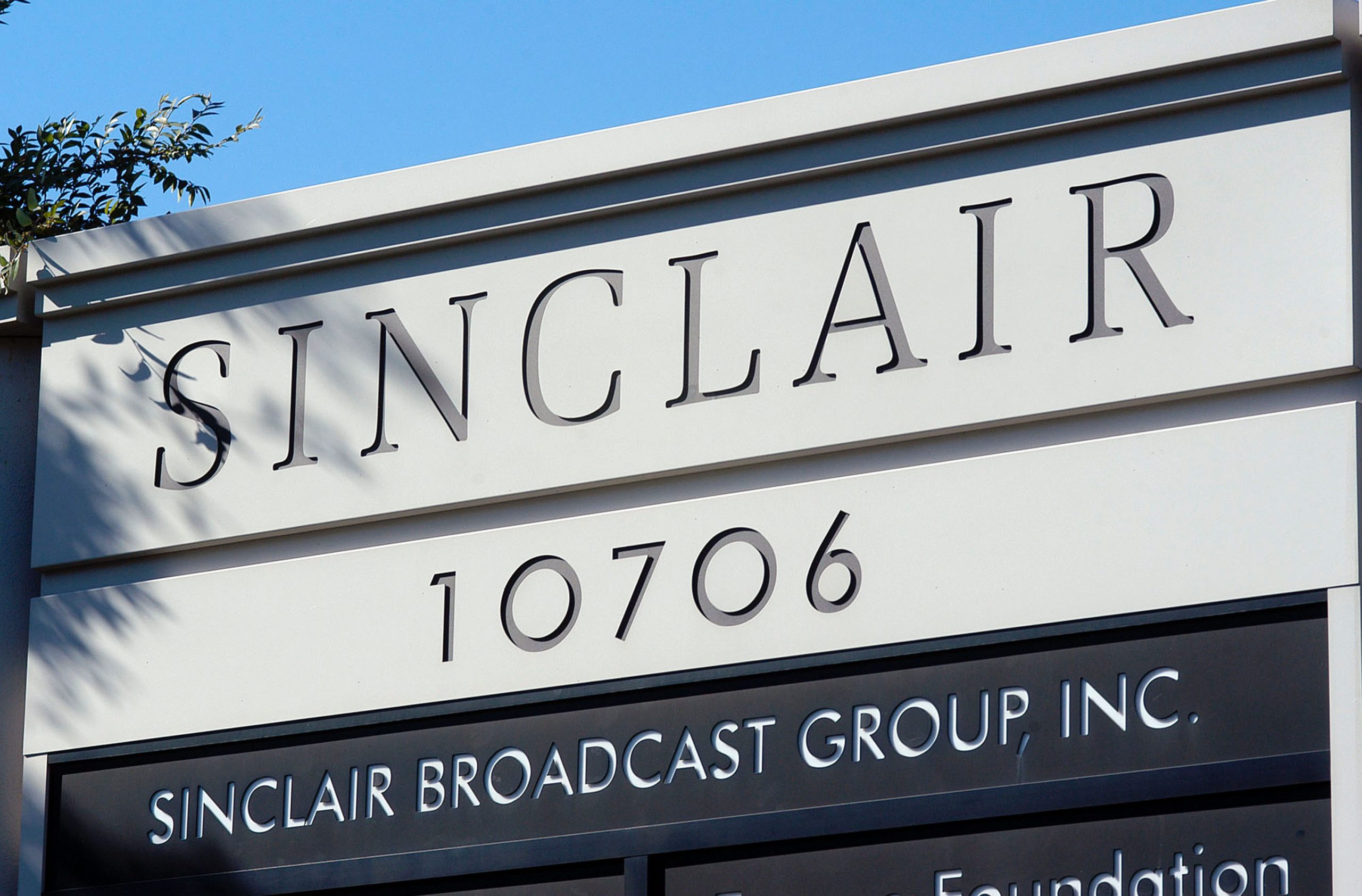Sinclair Broadcasting Group has agreed to pay a $48 million fine for portraying sponsored TV segments as news coverage—and other violations—in the largest-ever civil penalty paid by a broadcaster in Federal Communications Commission history.
The FCC announced the penalty yesterday, saying that a consent decree signed by Sinclair includes the fine and a "strict compliance plan" in order to "close three open investigations," including one into Sinclair's actions during its failed attempt to acquire Tribune Media Company. FCC Chairman Ajit Pai resisted calls to go further, which means that Sinclair is in no danger of losing broadcast licenses.
"Today's penalty, along with the failure of the Sinclair/Tribune transaction, should serve as a cautionary tale to other licensees seeking Commission approval of a transaction in the future," Pai said. "On the other hand, I disagree with those who, for transparently political reasons, demand that we revoke Sinclair's licenses. While they don't like what they perceive to be the broadcaster's viewpoints, the First Amendment still applies around here."
The FCC decision was "expected" but is also "unlawful" and "disgraceful," Benton Institute Senior Counselor Andrew Schwartzman said. From 1978 through 2012, Schwartzman led a nonprofit public-interest telecommunications law firm called the Media Access Project. Schwartzman said yesterday:
It was entirely predictable that FCC Chairman Pai would try to let Sinclair avoid a hearing as it prepares to seek to renew its licenses starting next month. It is hard to comment without seeing the text of this order, but I don't see how it can be lawful under the Communications Act, since the Commission previously found that there is a serious question as to Sinclair's qualifications to hold a broadcast license. That is a matter that must be resolved at a hearing, not swept under the rug with a consent decree.As Schwartzman alluded to, the FCC hasn't yet made the Sinclair consent decree public. Sinclair reported $1.6 billion in revenue and $44 million in net income in Q4 2019. The previous record fine for a broadcaster was $24 million for Univision in 2007 for failing to comply with children’s programming requirements.
Sinclair’s illegal merger plan
The FCC blocked Sinclair's attempt to buy Tribune in July 2018, with Pai saying at the time that Sinclair's proposal to divest certain stations "would allow Sinclair to control those stations in practice, even if not in name, in violation of the law." The FCC said yesterday that the consent decree "closes an investigation into the company's disclosure of information relating to its proposed acquisition of stations owned by Tribune Media." "Sinclair's conduct during its attempt to merge with Tribune was completely unacceptable," Pai said yesterday. As previously noted in this article, the fine also addresses Sinclair's failure to make required disclosures for paid programming. The FCC said:The programming in question was broadcast more than 1,700 times, either as stories resembling independently generated news coverage that aired during the local news or as longer-form stories aired as 30-minute television programs without identifying the true sponsor of the content (the Huntsman Cancer Foundation). In the Consent Decree, Sinclair admits that its actions violated the Commission's sponsorship identification rules.The FCC received a complaint about the Huntsman stories in April 2016. In December 2017, when the FCC first proposed a fine for the sponsorship-identification violation, the FCC said it "found that Sinclair and the Foundation had entered into an agreement under which Sinclair produced and supplied programming to both Sinclair and non-Sinclair television stations. This programming promoted the Foundation and the Institute and included 60- to 90-second sponsored stories made to look like independently generated news coverage and 30-minute paid television programs." Sinclair violated the Communications Act by failing to tell viewers that the TV segments were paid for by the Huntsman Cancer Foundation, according to the FCC. Sinclair also violated the US communications law's requirement that "entities like Sinclair that supply paid programming to other broadcasters inform them that the programming is sponsored," the FCC said in 2017. Aside from the merger and sponsorship violations, yesterday's consent decree "closes investigations into whether the company has met its obligations to negotiate retransmission consent agreements in good faith," the FCC said. In retransmission consent agreements, TV providers pay broadcasters for the right to distribute their channels. Contract disputes can lead to blackouts that take broadcast channels off cable networks and other TV systems.


